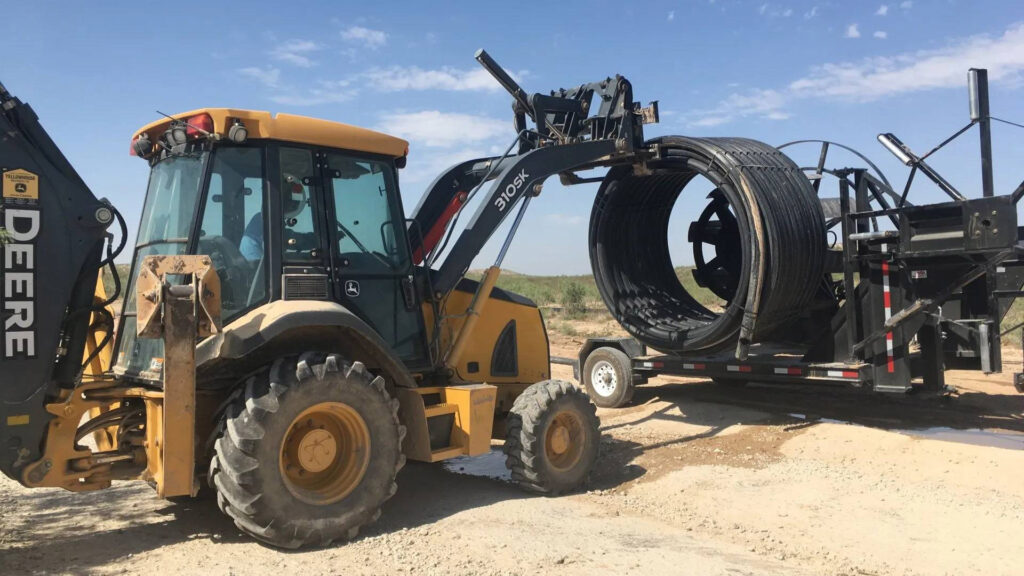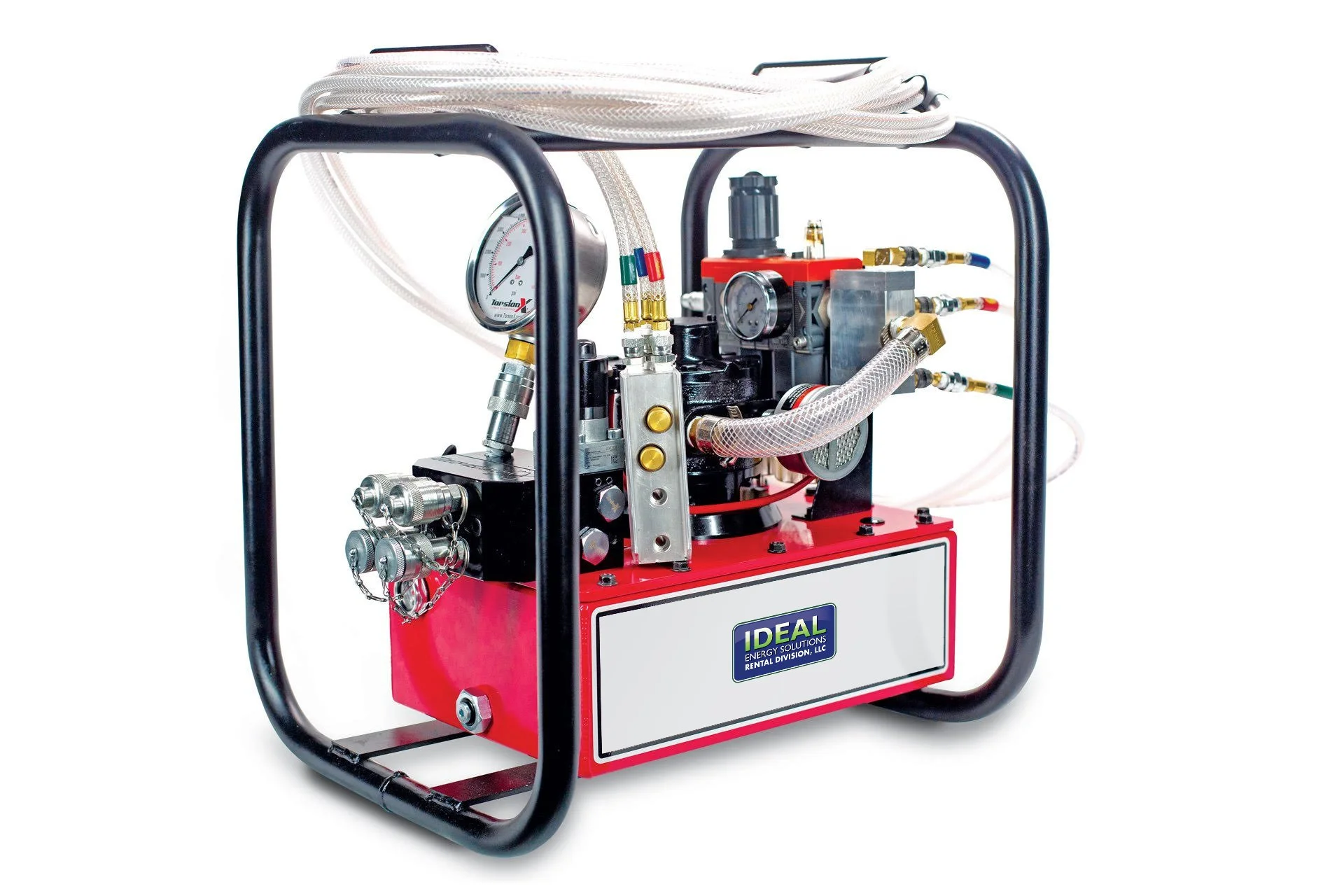Superior Oilfield pipeline equipment rentals vs owning machines: which saves more?
A Comprehensive Guide to the Various Types of Oil Field Equipment and Pipeline Equipment Available
The oil and gas sector depends heavily on customized equipment for effective extraction and transport. Different kinds of machinery, from drilling rigs to storage containers, play essential duties in this complex process. Each item of devices offers unique functions that contribute to general functional success. Recognizing these parts is important for anybody associated with the industry. As the industry evolves, so too do the innovations that sustain it. What improvements are on the perspective?

Drilling Rigs: The Backbone of Oil Exploration
Drilling rigs serve as the vital equipment in the domain of oil exploration, making it possible for firms to gain access to hydrocarbon books hidden deep beneath the Planet's surface. These rigs can be found in various types, including land rigs, offshore rigs, and mobile devices, each designed to operate in details environments. Geared up with advanced technology, piercing rigs can pass through geological developments with accuracy, making sure reliable resource extraction. The structural stability and operational abilities of these rigs are critical, as they need to endure extreme problems and substantial stress. The choice of an exploration gear influences the total task expense and timeline, making it an important consideration for oil companies looking for to optimize their exploration initiatives and optimize productivity in their operations.
Pumps: Crucial for Liquid Movement
In the oil extraction process, the function of pumps is substantial, facilitating the motion of liquids throughout different stages of production. Pumps are crucial for transporting petroleum, water, and various other fluids from underground storage tanks to the surface and after that with pipes to refineries. They are available in different types, consisting of centrifugal, favorable displacement, and completely submersible pumps, each offering particular purposes based on the liquid features and functional demands. Centrifugal pumps are frequently used for their effectiveness in high-flow applications, while favorable variation pumps master taking care of thick liquids. The selection of pump effects total efficiency, operational safety, and maintenance expenses. Proper option and maintenance of pumps are important for enhancing manufacturing and reducing downtime in oil area operations.
Shutoffs: Managing Flow and Pressure

Shutoffs play a crucial role in taking care of the circulation and pressure of fluids within oil areas and pipelines. Various sorts of shutoffs offer unique applications, each created to accomplish particular features fundamental for effective procedure - Superior Rentals midland. Recognizing the features and uses of these shutoffs is crucial for optimizing system performance and security
Kinds of Valves
Crucial elements in oil area operations, valves play a vital duty in controlling the flow and pressure of fluids within pipes and devices. Different kinds of shutoffs are utilized to meet the diverse needs of oil and gas manufacturing. Common types include gateway shutoffs, which offer a straight-line flow and very little stress drop; globe shutoffs, known for their strangling capacities; and round valves, identified for their fast on/off control. Furthermore, check valves avoid heartburn, while butterfly valves offer a lightweight remedy for controling flow. Each shutoff type is developed with details materials and configurations to withstand the rough conditions frequently discovered in oil areas, making sure reliability and performance in procedures. Understanding these types is essential for efficient system administration.
Valve Applications and Features
While different kinds of valves serve unique functions, their primary applications rotate around managing circulation and stress within oil and gas systems. Shutoffs such as entrance, world, and ball shutoffs control liquid movement, guaranteeing peak efficiency and safety. Gateway shutoffs are frequently utilized for on/off control, giving very little circulation resistance. World shutoffs, on the various other hand, offer specific circulation policy, making them appropriate for strangling applications. Round shutoffs are favored for their quick operation and limited sealing capacities. Additionally, pressure relief shutoffs are essential for protecting against system overpressure, protecting devices honesty. Overall, the proper selection and application of valves enhance operational effectiveness, ensuring the trusted transport of oil and gas through pipelines and processing facilities.
Compressors: Enhancing Gas Transportation
Compressors play a vital role in the effective transport of gas, guaranteeing that it moves efficiently via pipes over fars away. These tools enhance the stress of natural gas, permitting it to conquer friction and altitude adjustments within the pipeline system. In addition, compressors promote the harmonizing of supply and need, accommodating variations in usage and manufacturing rates. Different sorts of compressors are employed in the industry, consisting of centrifugal, reciprocating, and rotary screw compressors, each offering distinctive advantages based upon the operational demands. Routine maintenance of these compressors is important to make best use of effectiveness and minimize downtime, ultimately adding to a reputable gas transportation network. Their crucial feature underscores the significance of compressors in the general oil and gas facilities.
Storage Tanks: Safe and Effective Liquid Management
Reliable transportation of gas depends on numerous support group, one of which is the correct administration of storage containers. These storage tanks play a necessary role in securely containing fluids, making sure that functional effectiveness is kept while lessening environmental threats. Built from durable products, they are designed to hold up against high pressures and harsh aspects. Properly sized and tactically located, tank assist in the smooth flow of natural gas and various other liquids, avoiding traffic jams in supply chains. Routine upkeep and monitoring are important to identify leaks or architectural issues, advertising safety and compliance with governing requirements. Inevitably, the efficient monitoring of storage containers is vital for the total honesty and dependability of the oil and gas industry's liquid handling systems.
Pipeline Solutions: Infrastructure for Transportation
Pipeline systems work as the foundation of the oil and gas market, promoting the effective transport of hydrocarbons over huge ranges. These systems consist of numerous components, including pipes, shutoffs, pumps, and compressors, all diligently designed to ensure seamless circulation. The products made use of in pipeline construction, typically steel or high-density pay loader for sale polyethylene, are chosen for durability and resistance to corrosion. Pipeline networks can cover across land and water, linking manufacturing sites to refineries and circulation centers. Additionally, advanced innovation makes it possible for real-time surveillance of flow rates and stress levels, boosting operational efficiency. The tactical placement of these pipelines reduces environmental effect while maximizing source availability, thus playing an essential duty in conference power demands internationally.
Security Equipment: Ensuring Worker and Environmental Management
The operation of pipeline systems, while necessary for energy transportation, also offers substantial security difficulties for workers and the environment. Safety and security devices plays a considerable role in mitigating these threats. Personal protective tools (PPE) such as safety helmets, gloves, and non-slip shoes safeguards employees from physical risks. Furthermore, gas detection systems check for leaks, guaranteeing that harmful compounds do not position a risk to workers or the bordering environment. Emergency situation shutdown systems are crucial for rapidly stopping operations throughout a situation, stopping prospective catastrophes. Spill control products, consisting of absorbents and obstacles, are fundamental for minimizing ecological effect. Generally, investing in comprehensive security tools is crucial for maintaining operational stability and protecting both workers and the setting in the oil and gas industry.

Frequently Asked Inquiries
Just how Do I Select the Right Oil Field Equipment for My Task?
Picking the right oil field devices entails evaluating job requirements, spending plan constraints, and operational needs. Think about aspects such as equipment integrity, compatibility with existing systems, and the distributor's online reputation to ensure peak performance and safety.
What Are the Upkeep Demands for Oil Field Equipment?
Maintenance needs for oil field equipment consist of regular examinations, lubrication, and timely repair work. Operators should likewise abide by manufacturer standards, monitor efficiency metrics, and guarantee conformity with safety laws to improve longevity and performance.

Exactly How Can I Make Sure Conformity With Environmental Rules?
To assure conformity with ecological laws, firms must conduct regular audits, implement finest methods, invest in training, maintain proper documentation, and stay updated on legislation (Superior Oilfield Rentals). Collaboration with environmental firms can additionally boost adherence to regulations
What Is the Average Life Expectancy of Pipeline Equipment?
The typical life expectancy of pipeline equipment usually ranges from 20 to half a century, relying on aspects such as material quality, ecological problems, and maintenance practices. Normal examinations can considerably influence durability and operational efficiency.
Just how Do I Safely Carry Oil Field Equipment to Remote Locations?
Moving oil area equipment to remote locations calls for mindful preparation, including course analysis, securing licenses, making use of proper cars, and guaranteeing security protocols are adhered to. Appropriate training and communication amongst staffs are crucial for successful transport.